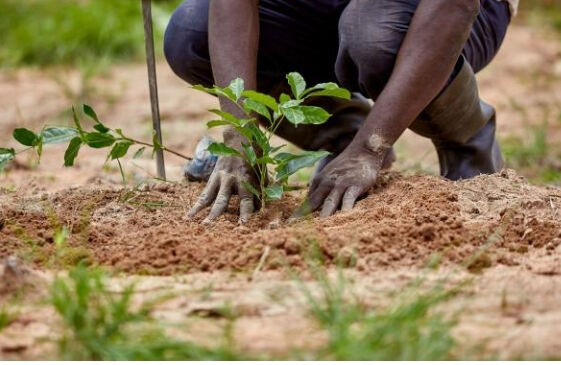Nigeria Plans To Plant 2 Billion Trees
The Minister of Environment, Abbas Balarabe made this known in Abuja at the inauguration of the Steering Committee for Biodiversity Business targeted at poverty reduction, preservation of natural ecosystem and sustainable development.
The three key projects according to him are Biodiversity Business in Omo Biosphere Reserves, Oban Biosphere Reserves and Shere Hills Reserves, Nigeria.
It is a United Nations Educational Scientific and Cultural Organisation, UNESCO, projects through the Indian/ UN-funded window.
Inaugurating the Committee headed by Prof Adesola Adepoju in Abuja, Adepoju noted that the planting of the trees is one of the many takeaways of the President Bola Tinubu administration from the just concluded COP28 Summit in Dubai, United Arab Emirates.
“We visited the Pavilion of a particular country and observed that they have planted about 32 billion trees in their country to preserve biodiversity and respond to climate change challenges.
“If a country that is not as large in population and size like Nigeria could plant 32 billion trees, then we can begin the process of planting at least two billion. This will be in line with President Bola Tinubu Renewed Hope Agenda for sustainable development, poverty reduction and environmental conservation,” the Minister said.
He said the government was committed to addressing critical issues relating to power and energy resources which often precipitated the use of firewood and charcoal in rural areas, forcing the people to engage in indiscriminate felling of trees.
The Head/Representative of UNESCO in Nigeria, Dr Abdourahamane Diallo said the project was the first to be supported by Indian in Nigeria with about one million United States dollars. He explained that UNESCO would be collaborating with the government, the Nigerian Man and Biosphere (MAB) Committee and other stakeholders to ensure the success of the projects.
Diallo said:” National economies depend mainly on services provided by natural resources and biodiversity. Such services include water supply, agriculture, livestock, fisheries, forests, non-renewable energy, amongst others.
“However, unsustainable land use practices, over-exploitation of natural resources and biodiversity, and ineffectively managed protected areas and their zones, all pose serious threats to the maintenance of ecosystems and habitats. “
The envoy assured that the projects which would be implemented in various communities across Nigeria would involve the participation of the rural dwellers as they have been captured for empowerment and provided with incentives for survival.
The Indian High Commissioner to Nigeria, Ambassador Pramod Kumar Agrawal informed that Indian recently supported 15 developing countries in Sustainable Development Goals programme, noting that the biodiversity projects was the first of its kind in Nigeria.
However, the envoy promised that Indian would continue to identify with initiatives aimed at improving the lives of the citizens, and lauded the concerted efforts by all the stakeholders to ensure the success of the biodiversity projects in Nigeria.

